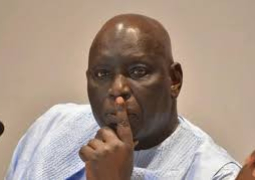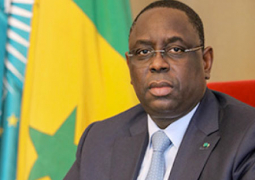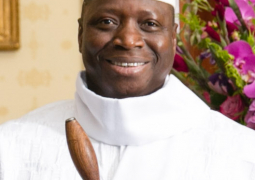In about seven months, The Gambia will head to the polls to elect a President. Indeed, this will be a crucial moment in our political transition and democratic process. The first phase of the transition has failed to achieve its aspirations towards a New Gambia that is clean, stable and sanitized. The betrayal of the Coalition Agenda has become the most contentious issue in the political transition. We are now at the threshold of another vote in 2021. The registration of voters is the first step towards preparing the ground for the elections.
There is some expression of fear that foreigners will be registered to vote in the elections. This is due to our experiences in the past where politicians and the executive pressure influenced influx of foreigners into the registration process. This registration year provides opportunities for political aspirants to demand that Alkalos’ attestation of citizenship of a voter be done under oath in the presence of the registration officer. In this context, all registration teams should be supplied with copies of the Quran and the Bible by the IEC for the purposes of such attestations.
It could be fraudulent for any person to go to a registration centre and present an Alkalo’s attestation of citizenship. To ensure a fair and genuine registration process, party leaders and their agents must pay attention to this concern by many in the country. At the time, these realities on the ground spoke volumes of weakness in the immigration system. Therefore, in my opinion, the IEC guidelines and requirement of proof of a national identity card, passport, birth certificate, etc. for qualification to be registered as a voter are not sufficient to authenticate the right to vote in light of the loose documentation of non-Gambians in the system.
The guidelines could have included longevity of stay in the country and parental background check. It is unacceptable by all accounts for a person who was not born or who was not fully naturalized in the country to be allowed to vote in our national elections. It is equally illegal for undocumented immigrants and those foreigners illegally residing in the country to have access to voter cards through the backdoor. How can such foreigners have voter cards without a national identity card?
It has been widely said that it is easy for a foreigner to sneak into The Gambia, settle down and acquire our national documents. Of course, the authorities will deny such claims but the realities on the ground speak volumes of weakness in the system. This registration year provides opportunities for political aspirants and their agents to ascertain the background of those who wish to be registered to vote in our elections.
One of the most contentious issues in the CRC Draft 2020 Constitution is the issue of CITIZENSHIP. It is of paramount importance for the IEC to be very vigilant on this issue in its registration of voters. The free, fair and transparent conduct of the electoral process will be anchored on the credibility of the registration of voters. At the end of the day, Gambians will demand a clear picture as to the total number of registered voters and the geographic distribution of the electoral map.
Turning to the current political climate of the 2021 vote, there is considerable public doubt as to which constitution will prevail – the 1997 or 2020 Draft Constitution. In this regard, perhaps, the executive should clear the air so that Gambians know the legal means that will see us through the 2021 elections. From the proliferation of political parties, it could be said that the anticipation was for a coalition that will lead to power-sharing in government as it happened in the 2016 elections. However, as things stand, it is more likely that the simple majority 1997 Constitution will lead us into the 2021 elections.
The political uncertainty about who will win under a simple majority is worth the consideration of presidential aspirants. It is like a penalty kick in a football match: victory can go to either side of the game. Another point of reflection is the diaspora vote. If the court order of diaspora vote is not implemented, any outcome of the December results could or may be challenged in the courts as being incomplete and thus invalid. That could result in a constitutional crisis.
To end this piece, one must wonder what the Election Bill entails that would warrant a tour of the country by the House Select Committee. The idea of ‘participation and consultation’ is a misnomer in the context of coverage and raising the level of awareness of modern day governance. This was a misleading factor concerning even the Draft 2020 Constitution. We tend to be a bit too fanciful in our aspirations of such a system of governance. Gambians are unpredictable in politics. Therefore, the VOTE IN 2021 will largely depend on a sound winning strategy.
Many Gambians at home have graduated from political ignorance. The 2016 Elections served as a lesson for all to learn from. There is a new wave of generational consciousness which cannot be swayed into voting for the wrong party and leader. Power to the people.
By: D.M. Badjie
Political Scientist/Analyst
Thank you.Got it.Cool.




